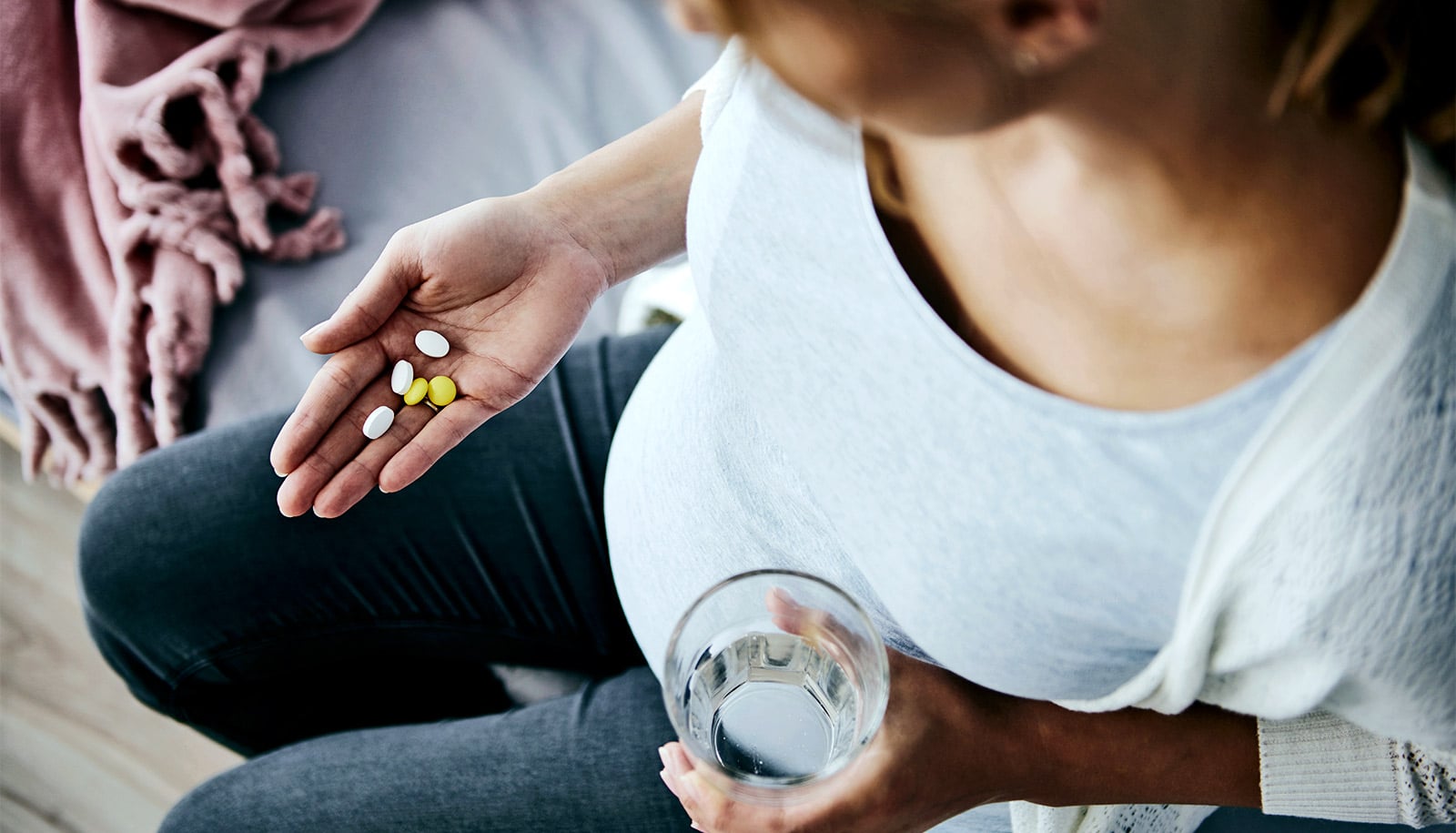Taking antidepressants during pregnancy is unlikely to cause seizures in newborn babies and epilepsy in children, according to a new study.
Researchers examined whether taking selective serotonin reuptake inhibitors or serotonin-norepinephrine reuptake inhibitors in the first trimester of pregnancy was associated with an increased risk of seizures in babies younger than one month or of epilepsy later in childhood.
“We wanted to understand if there’s a causal relationship between taking antidepressants in pregnancy and an increased risk of seizures in children,” says Kelsey Wiggs, a PhD candidate in clinical psychology in the psychological and brain sciences department at Indiana University and lead author of the study in Neurology.
“There’s a known association between depression and seizures, so a child born to a woman who has experienced depressive symptoms during pregnancy could be at elevated risk of seizures for a number of reasons related to the underlying condition, without antidepressants necessarily playing any causal role.”
“The decision women are often faced with can feel like making good choices for their health might be inconsistent with making good choices for the health of their child.”
Wiggs and her colleagues worked with data from national Swedish registries, which include comprehensive data from prenatal visits, deliveries, and newborn examinations for nearly all births since 1973. Since mid-1994, women have also reported any medication use during pregnancy.
To study neonatal seizures, the researchers used data from all children born between January 1, 1996, and November 30, 2013. The study of epilepsy in childhood required a minimum of two years of follow up, so researchers restricted that sample to children born before December 31, 2011.
Selective serotonin reuptake inhibitors included fluoxetine, citalopram, paroxetine, sertraline, fluvoxamine, escitalopram, and some that were unspecified in the data. Serotonin-norepinephrine reuptake inhibitors included venlafaxine and duloxetine. Of this study’s sample, 23,160 children, or 1.49%, were born to women who reported use of at least one of the antidepressants.
The raw data showed that children born to mothers who reported use of antidepressants in pregnancy had a 41% greater risk of experiencing seizures in the first month of life, and a 21% greater risk of being diagnosed with epilepsy during follow-up appointments, as compared to children of mothers who didn’t report antidepressant use.
But when researchers adjusted the model to account for mothers’ diagnoses of depression or anxiety, they found that it substantially reduced the observed associations between antidepressant use and children’s risk of neonatal seizures or childhood epilepsy. An adjustment for parental history of epilepsy appeared to have little influence, but a final adjustment for additional maternal factors such as smoking during pregnancy and sociodemographics like education and income, reduced most of what remained of the associations.
“The decision women are often faced with can feel like making good choices for their health might be inconsistent with making good choices for the health of their child,” Wiggs says.
“That’s what drives a lot of my research into pregnancy. I’m trying to resolve some of these questions of potential risk, and even if there are risks, I want to provide as much information as possible for women and their doctors to help them decide whether or not to avoid a particular medication.”
Wiggs’ research is part of a broader research effort to study medications taken in pregnancy and their possible effects on children. She has also studied autism and ADHD risk in the children of women taking one of three seizure medications during pregnancy.
Source: Indiana University



